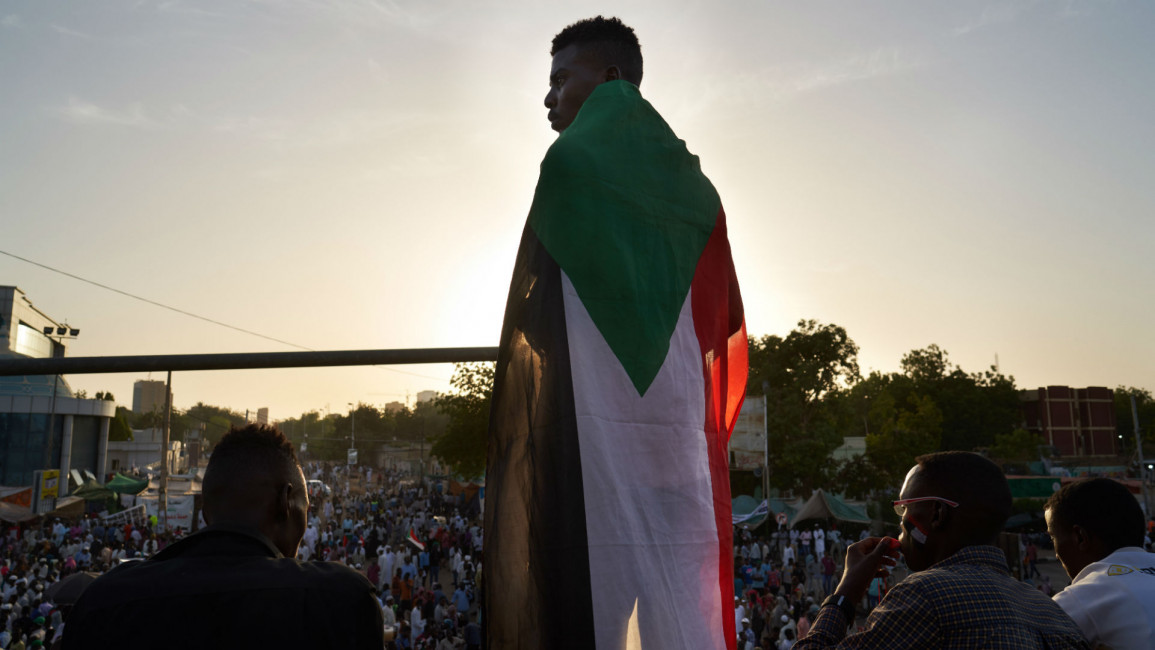Sudan's intelligence chief resigns amid killings
Sudan's intelligence chief resigned Wednesday after five people, including two soldiers, were killed as government forces crushed a mutiny by members of the country's long-feared security agency.
Highlighting the continued fragility of Sudan's security situation nine months after longtime dictator Omar al-Bashir was ousted during mass protests, heavy gunfire broke out on Tuesday at several intelligence agency bases.
The military said two of its soldiers were killed when the regular army and a paramilitary group stormed the bases, while doctors close to a protest umbrella group said three civilians were killed by gunfire near a base in southern Khartoum.
On Wednesday afternoon, General Abdel Fattah al-Burhan, chairman of the country's transitional ruling council, announced on state TV that the intelligence service chief General Abu Bakr Mustafa had resigned.
Read also: Senior general accuses Bashir's former intelligence chief of orchestrating mutiny
"He called us by telephone and we asked him to give a written resignation which he did. We are now examining it," Burhan told state television.
The violent unrest came as agents of the General Intelligence Service -- known as the National Intelligence and Security Service under Bashir -- rejected a retirement plan proposed by the transitional government.
"We decided to storm the bases to end this rebellion... We have now taken control of these bases," Sudan's chief of staff Lieutenant General Osman Mohamed al-Hassan told reporters early on Wednesday.
"We lost two soldiers and four others, including two officers, have been wounded."
Doctors close to the protest movement -- a key part of the joint civilian-military transitional council that came to power in August -- said three civilians from the same family were killed during the clashes, while a teenager was wounded.
- 'We will not allow a coup' -
Burhan said the rebellion was launched by the military wing of NISS which was set up by the agency's former chief Salah Gosh under Bashir's regime.
He said the new authorities do not see any need for such a military wing in the intelligence agency whose job is essentially "to gather information and analyse it".
"Forty members involved in the incident have surrendered. We have also formed a committee to investigate the issue," he said on state TV.
Government spokesman Faisal Mohamed Saleh said the rebellion was launched by NISS agents who rejected the amount of money alloted for taking retirement as part of a restructuring plan proposed by the new authorities.
Burhan's deputy General Mohamed Hamdan Daglo has blamed Gosh for the rebellion.
Gosh, a key figure in Bashir's regime, stepped down days after the veteran leader was toppled. His whereabouts are unknown.
Early on Wednesday, soon after the rebellion was crushed, Burhan told reporters "we will not allow any coup against the Sudanese revolution."
"We will protect this transition term and anyone who tries to disturb the security and stability of citizens will be defeated."
The joint civilian-military ruling body is tasked with overseeing a transition to civilian rule as demanded by the protesters who ended Bashir's 30-year rule.
Khartoum international airport reopened on Wednesday after the authorities shut it when the shooting erupted. One of the NISS bases lies close to the airport.
Production also resumed at two oil fields in the war-torn western region of Darfur after government forces retook them, Oil Minister Adel Ibrahim told state television.
He said some "rebel members" of NISS had taken control of the Sufian and Hadid fields in East Darfur state but had now surrendered to government forces.

![Widespread famine is imminent in Gaza [Getty Images]](/sites/default/files/styles/image_330x185/public/2024-03/GettyImages-2015647000.jpg?h=199d8c1f&itok=mJWWP_Td)

